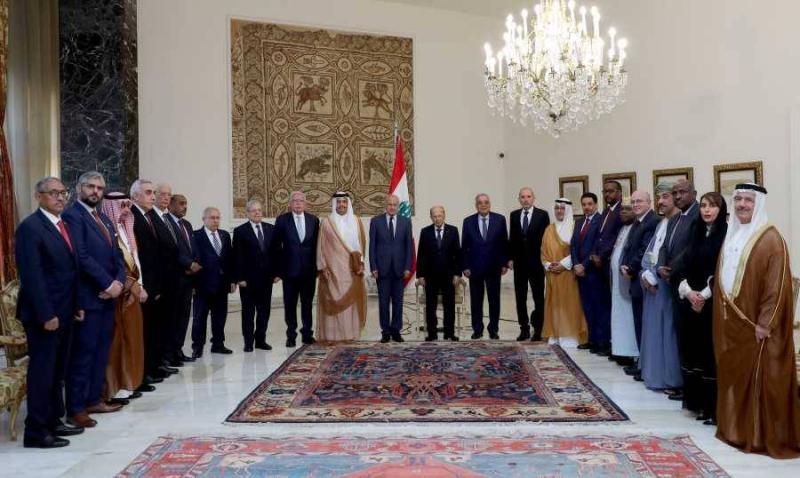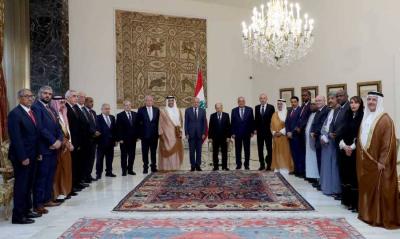The consultative meeting of Arab foreign ministers in Beirut did not represent a qualitative leap in Arab-Lebanese relations; rather, its mere occurrence signaled positive indications regarding the continued Arab interest in the small country, with many calls for the Lebanese to help themselves. The majority of the positions focused on these points, which were expressed by the foreign ministers of Kuwait and Qatar, as well as the Secretary-General of the Arab League.
The meeting discussed files of mutual interest without reaching a single or unified work program. Although the possibility of holding the Arab summit in Algeria next autumn was explored, the current position still remains unchanged regarding the rejection of Syria's participation in the summit.
At the Lebanese level, multiple files were addressed, with the most notable being the enhancement of Arab-Lebanese relations and the necessity of actual commitment to the terms of the Kuwaiti initiative. Meanwhile, whispers in the corridors emphasized the need to implement reforms and adhere to constitutional deadlines, starting from the swift formation of a government to the election of a new president.
In light of all the Lebanese crises, the Lebanese discourse remains wooden in addressing the challenges and transformations. It continues to blame Syrian and Palestinian refugees and requests assistance under the pretext of hosting them, according to the Kuwaiti newspaper "Al-Jarida." This stance did not sit well with Arab officials who believed that Lebanon knows how to evade responsibilities and shift them to others, while it would be more appropriate for the Lebanese to work towards breaking away from partisan politics and achieving the necessary reforms to secure assistance from the International Monetary Fund and donor countries.
According to sources following these developments, the activities of the foreign ministers of Qatar and Kuwait stood out in their meetings, aiming to unite the Lebanese on mutual understanding and to conclude settlements and agreements to prevent the country from being crushed by partisan policies, especially against the backdrop of the regional escalation amid the deadlock in the nuclear negotiations from Vienna to Doha, alongside the gas conflict in the Eastern Mediterranean.
These issues are also linked to President Joe Biden's upcoming visit to the region and the preparations for an Arab-American summit, as well as discussions on forming an Arab NATO, which Lebanon refuses to engage with and fundamentally opposes.




